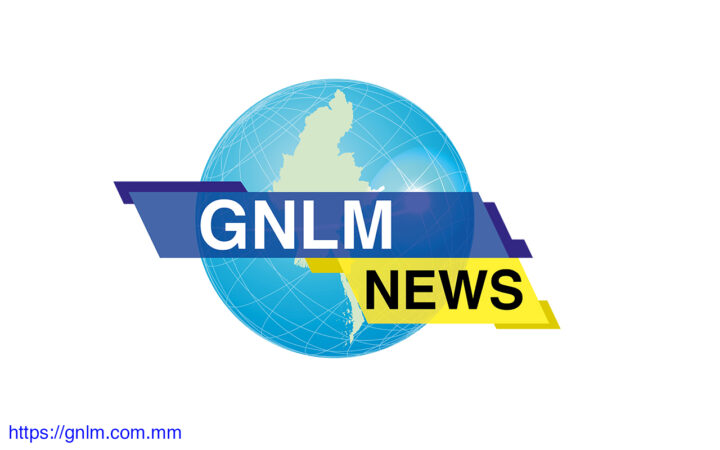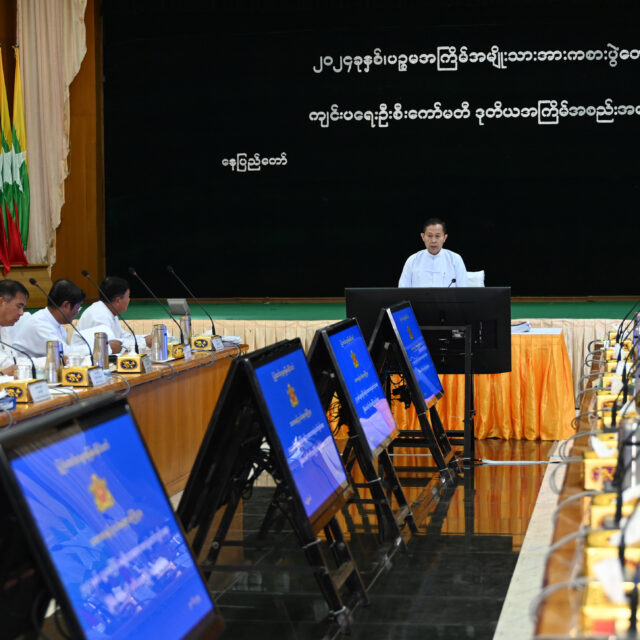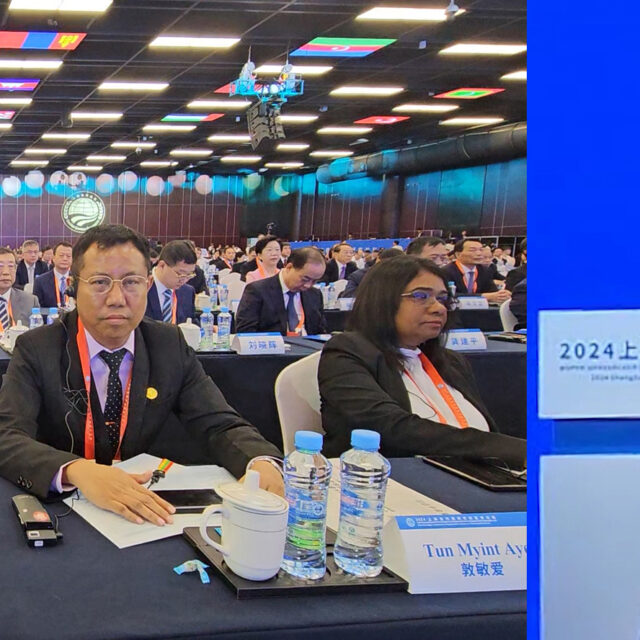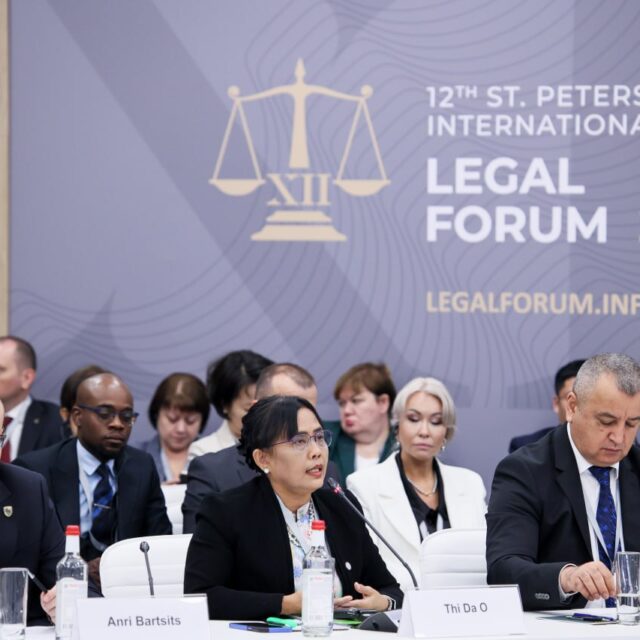Depending on who you asked, the percentage of Myanmar under the control of EAO, rebels and the NNCP terrorists varies. From fake news agency Mizzima 60 per cent to NUG’s half of the country to the central government not acknowledging a number, it is a fact that there are certain states and regions that we cannot travel freely now without the risk of encountering the trio of anti-government forces. Feel free to dispute my statements with facts.
Kayah, Chin, Kachin, and Kayin are mostly inaccessible to the general public now, without the escort of an armed regiment. People would not venture on routes along Sagaing, Magway, Taninthayi, and Rakhine unless it were an absolute imperative. Civil servants have to use air travel to get to major cities of administration in these States to avoid the risks of being kidnapped and killed by these terrorists. Even the outskirts of Mandalay region have been compromised. On our recent trip from the town of Myingyan to the city of Mandalay, we were told there was the possibility of terrorists (PDF) coming up onto the roads and asking for levies and dues. We were also asked if we were civil servants, and they would be advised to turn back. Even the relatively safe states such as Mon and Bago have seen occasional bombings along the rail tracks and bridges. Two local staff of a Korean Microfinance company were shot dead in May while visiting a ward administrator in Bago Region in an assassination attempt on the administrator himself. Talk about being caught in the wrong place at the wrong time!
There is no doubt that there is now a civil conflict going on within Myanmar. Regardless of how the war is waged (in our case, using terrorist activities), civil war, by definition, is a war between organized groups within the same state (or country). The aim of one side may be to take control of the country or a region, to achieve independence for a region, or to change government policies. With NNCP (NUG, NLD, CRPH, PDF) terrorists ganging up EAOs and rebel groups, it would be hard to fathom how we could possibly fulfil even the first of the ASEAN five-point consensus for Myanmar. Mission Impossible, indeed.
Meanwhile, the casualties of war keep on increasing. Hence, this article.
It’s the economy, stupid!
Suffering from COVID-19, together with the rest of the world, is one thing, but having to grapple with a downturn for four consecutive years is hard to take for a lot of businesses in Myanmar. While the global markets have shrugged off the tensions between America and China, anxiety and attacks in the Middle East, coups in Africa and the Russia-Ukraine war (evidenced by successive monthly record highs in Dow and S&P indices), higher inflation, lower or negative growth, disruption to operations, unstable exchange rates have become a daily dose of bitter pills for businesses here in Myanmar.
It is quite difficult to find an impact from war analogous to what Myanmar is experiencing. Russia is the world’s 11th-largest economy and one of the largest commodity exports (oil, gas, nickel, aluminium, palladium, potash, etc.). Ukraine is big on wheat, being the world’s fifth-largest exporter. Israel exports lots of tech, and other Middle Eastern countries have black gold in their backyards. Myanmar only has agricultural and CMP exports, which do not necessarily put the country in a position of strength. Yet, the destruction of infrastructure and sanctions damaged the export supply chains going through the war zones.
Sanctions also may not have much impact on other war-torn countries; they did not prevent BP, Exxon or Shell from continuing to invest in Russia. The West cut off Russia’s access to IT, software and talent. Its banks were cut off from using SWIFT for cross-border fund transfers. These tech-based measures acted as a drag on Russia’s growth over time and annoyed its consumers. But it recovered quickly. The country managed to reduce the number of US dollar-denominated trade transactions. For example, only 33 per cent of transfers between China and Russia are now in US dollars, down from 97 per cent in 2014.
In Myanmar, however, a funding crunch due to banking restrictions, impeding financial flows and net outflows of FDIs have taken a toll on international investors. Famous for being ‘First to leave and last to arrive’, many Japanese firms have abandoned Myanmar. Many technology talents have left the country, mainly to Thailand. Companies in Myanmar, regardless of whether local or foreign-owned, are now deprived of the IT talent necessary to help them grow in this digital and AI era.
As most economists would concur, the long-term impact of wars happening now in different parts of the world would be an acceleration of the division of the world economy into economic blocs. Right now, Russia, China and the blocs led by them are on one side, while the EU, the US and their allies are on the other. The world is being split into two blocs. Does anyone recall WWII on any similarities prior to the actual military action?
Another impact of sanctions and such divisiveness would be each country or bloc intensifying campaigns of self-sufficiency. Those following Myanmar news would undoubtedly remember many of the Senior General speeches highlighting the need for self-sufficiency and significant import substitutions. Wars, including the civil strife in Myanmar, might not cause the economic crisis today, but they will change how the economy operates for decades to come.
As James Carville (Clinton’s elections strategist) put it, “It’s the economy, stupid!” And it is exactly what is being experienced across the board in Myanmar.
Transparency, or rather, the lack of it
Dalai Lama once said, “Lack of transparency results in distrust and a deep sense of insecurity.” Currently, there is a serious dearth of information available to assess the economy and its potential correctly. This consequently makes business planning out of the question. “Without proper planning, you are sure to lose the battle,” said Sun Tzu.
Deng Xiaoping once said, during the reform era of China, that “we must seek the truth from facts”. If the facts are invisible or being covered up, how would we ever see the truth? If the government is not positioning itself on truth, how could it possibly come up with strategies for the betterment of the country? The top leaders of the country would somehow end up being in a world of claptrap, oblivious to many upcoming grey rhino incidents in the country.
We are leading the country towards the path of democracy, but still, we are not open to any form of opprobrium. How can this be!
Infrastructure crumbling
Public services are shutting down in most affected areas. Government offices, including schools and hospitals, cannot function without the protection of the armed forces in some states and regions.
Missed mortgage payments from borrowers due to the economic downturn risk triggering another banking crisis. Lack of trust in banks and the banking system continued as an extenuation of the bank run in 2021. The smaller banks are still unwell, yet CBM is not prioritizing getting them merged to make them bigger and stronger. Hence, people continue to place excessive reliance on gold, consequently making the gold prices uncontrollable due to imprudent demand.
Even those infrastructures watched over by security forces were being drop-bombed by NNCP terrorists, disrupting supply chains much needed for economic stability and growth. While Jakarta has just finished building bullet trains, Nay Pyi Taw is still having to defend our antique rail tracks incessantly targeted by terrorists.
Having to focus on non-value-added, non-economic activities, plus business people and residents putting all they have into non-income-generating activities such as gold and foreign currency buying, could eventually slide the country into a debt crisis, with unheard-of exchange rates, gold prices and inflation – A recipe for even more extreme politics, perhaps.
Everyone is becoming a Smuggler
War across border regions and disruption of trade routes, combined with import controls, have resulted in the debilitation of entrenched supply chains and integrated markets across the country. With a limited release of import permits, recent warnings of further penalties for imports arrived prior to the permit, and bonded warehouses only accepting essential goods for local manufacturing and pharma industries, businesses and companies are having to turn to illegal imports through the border, effectively becoming indirect smugglers. For example, one long-established foreign businessman with around 20 years in Myanmar has to resort to relying on his contacts in Shan State to import much-needed spare parts for ATMs for the banking industry.
With the shortage of imports, business people are having to turn to alternative ventures such as selling Bangkok properties to residents. This itself has taken a toll on the demand for foreign currency, deprecating the Kyat further. Hence, the government justify its action against such resellers of overseas properties. There have been rumours that the owner of a well-known property group and its managers were being called up for their part in promoting the resale of the flats out of the en bloc Bangkok property they had recently purchased.
The government is resorting to barter trade to somehow circumvent the requirement for the complex web of exchanges and rates. We have to wait and see if this strategy will result in successful implementation.
to be continued.












